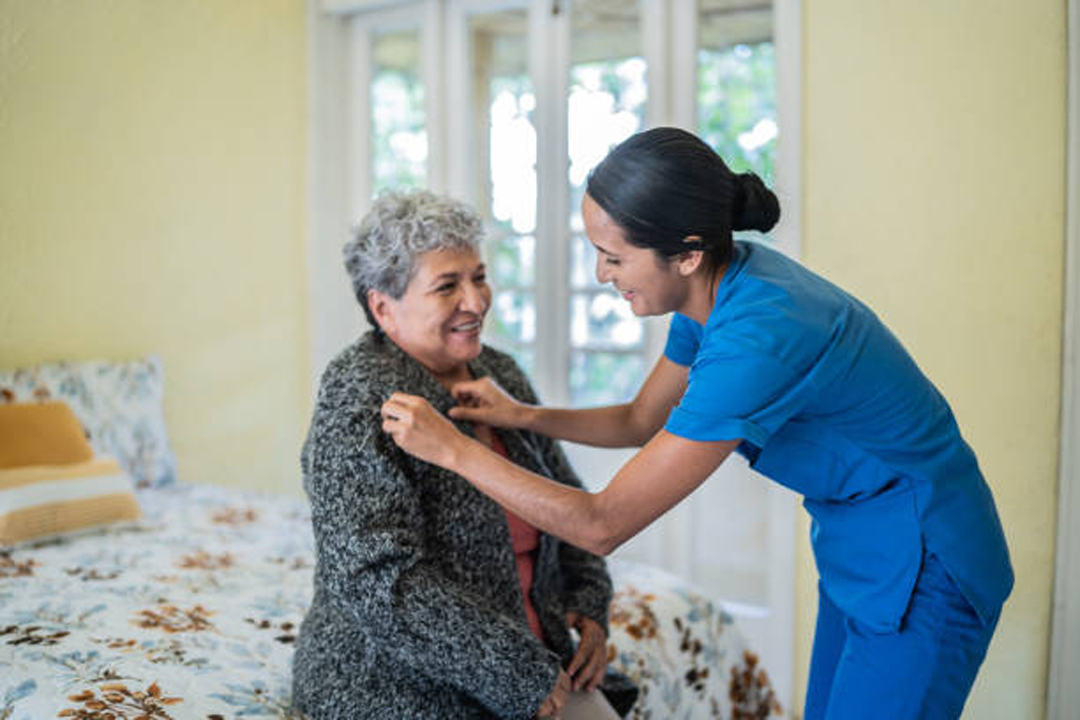
As our loved ones get older, it can be difficult to know what type of care they need. On the one hand, it can be a rewarding experience caring for an elderly parent or grandparent, but at the same time their care can be hard to juggle with the likes of work, parenting and social activities.
Deciding to transition their care into a care home is one option, and one that should be carefully considered and dealt with sensitively. They can provide expert care and support, as well as using decades of experience to ensure a person’s health is properly managed and maintained. It’s not an easy decision to make, but there are key factors that could contribute to believing it’s the right time for the move…
Declining Health and Increased Medical Needs
Naturally, one of the primary indicators it may be time to start looking at senior care homes is when there’s a noticeable decline in a loved one’s health and more medical attention is required. The best possible care will come from professionals, and therefore it can be the best decision for all if caregiving does become that demanding. At a care home there will be round the clock care, rather than such juggling, which can prove even more difficult to manage as conditions worsen.
What’s more, specific activities and processes are put in place to manage health and medical needs, while the facilities in general will be much more equipped to manage your loved one. Declining health can see a lot of changes needed to a home, from stairlifts to ramps outside the home, and in some cases complete bathroom refits, so a person can get in and out of the bath and shower much more comfortably. That can have a serious impact on finances.
Safety Concerns at Home
As age continues to play its part, the home can become a more hazardous environment to be around too. With falls more likely, things like stairs and hard surfaces within your living spaces become more problematic. Ultimately, if your elderly loved one’s safety is compromised and your home no longer suits their mobility needs, then a more secure environment, such as a residential care home for seniors is the best option.
Of course, it is possible to add features to your home such as alarms and the like, but what is lacking is still that round the clock care that ensures a loved one is safe at all times, not just being able to seek help by pulling an alarm when they are in trouble.
Social Isolation and Loneliness
While your care will always be welcomed by your loved ones, social isolation and a lack of meaningful interactions on a regular basis can lead to loneliness which is significantly detrimental to a person’s life. One of the huge benefits of a care home is that people become part of a community, making friends, enjoying activities together and importantly, not being alone.
Studies have shown that isolation can be severely damaging to an elderly person’s life, and that regular interaction can in fact lengthen it. That’s because loneliness can lead to the likes of depression and other mental health problems, while studies have shown that people who define themselves as lonely are more likely to develop conditions such as dementia. In which case then additional care from trained professionals would certainly be required to manage and maintain your loved one’s condition.
Deteriorating Cognitive Function
It may be that specialist care is needed for more cognitive conditions, which provide significant challenges for families. While ill health will play its part, so will conditions such as dementia or acquired brain injuries, which becomes more and more difficult to manage. Care homes have the expertise and facilities to better treat people living with such conditions, and can make living with them much more comfortable as a result.
Care homes can provide 24-hour schedules of care that are designed to suit an individual’s needs, which just simply isn’t possible when you may have other people you care for as well as having a job and bills to pay.
Caregiver Burnout and Strained Relationships
Of course, finally, you have to think of yourself too. Caregiving can be a hugely emotional and physically taxing thing to do, particularly when you do need to juggle the rest of your life too. It can strain relationships, whether that be within the family, friends or colleagues that can often be difficult to repair when they aren’t a priority anymore, caring is.
That can in turn lead to isolation on your own part, with studies showing that around one in five family caregivers suffer from depression. It’s been described as a silent crisis, with so many suffering from burnout both mentally and physically.
There are tips out there to avoid burnout, but ultimately, accepting that you need help can be the best decision for all, ensuring they get the care they need and you are able to look after your own life effectively.
Is it time? Speak to a Professional
You’ll typically get a feeling that you can’t manage and it’s best for all concerned to consider a care home. The best advice is to reach out and speak to homes or your doctor to discuss the situation and get professional advice on what may be the best course of action.
You want your loved one to have the best care, and it may be that you may no longer be the best person to provide that as conditions develop. That doesn’t mean you no longer can care. Care homes value the input of family and the importance of them, it will just mark a new chapter in their care, and one that is better for the health of them and you, allowing you to take some time back for yourself and ensure you too have a happy and healthy balance and lifestyle moving forward.
Comments
comments